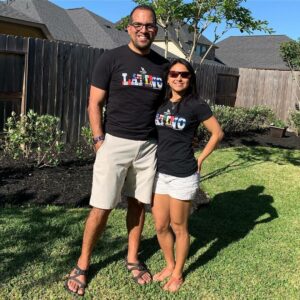Looking for a new way to engage college students? Have you considered hosting a recurring skeptics dinner?
If you’re unfamiliar with the Young Life College: Skeptics/Seekers/Saints language, refer to The Big Guide for Relational Work in YLC.
The essential intent of a skeptics dinner is to relationally engage college students who would consider themselves skeptics towards Jesus and Christianity. Ideally, these students would mirror the socioeconomic, thought, and ethnic diversity of the university they represent.
This is also an opportunity to help additional students who are already following Christ to grow in their faith. You would want to invite more “skeptics” than “saints,” maybe a 10:5 ratio.
The philosophy of skeptics dinners is to engage students by listening to them discuss their opinions about deeper questions of life. Dinners are to facilitate individual relationships where deeper questions are processed, and people are introduced to Jesus.
The goal is to get students sharing their opinions in an open and honest way while allowing other students to hear and respond during dinner with the hope/intention that students will have side conversations after the dinners to go deeper.
The Rules of the Skeptics Dinner
Every time before we share the discussion questions, we also discuss the following guidelines for the conversation.
- Allow comments to sit a little before responding.
- Try to be comfortable with silence.
- We all come from different backgrounds and hold different worldviews, so please be respectful of another’s opinion, even if you disagree and want to challenge it.
- Our goal is not to resolve the tension, but increase thought and exposure, so we may end our time without having fully solved the problem.
- Dinner is free, but you can choose to Venmo $5 to______to help offset costs.
Practical Tips
- We come to the first dinner with two questions, but also ask students to write out as many questions as they want to discuss in the future. We also ask them to write what kinds of food they would like to have.
- As a team, we pick two questions/topics every week to bring to the table. Everyone votes. The “losing question” comes back for the next week along with a new question. This is helpful since oftentimes the vote is close and people want to discuss both topics.
- We have also had students vote through Google Forms what their top picks are and then we order the questions by those top 15.
- We always make sure we get or make really good food—aiming for $10-$15 per person.
- It is important to say that our philosophy holds that God is the only Author of faith and He does not need us, but chose to use us for his purposes. We are free to say we are Christians and our Christian worldview shapes our opinion about this topic—we refrain from giving “simple Sunday School answers.” Our goal is to make students uncomfortable with their worldview by their honest assessment and discussion of it—so we refrain from telling students about Jesus or God from a Christian perspective during dinner. Our hope is to talk with them individually or in smaller discussion groups about it after dinner or at other contact points.
- We invite people personally rather than through social media, though there is a place for social media.
- Leaders are in charge of finding out who is coming to dinner and if there are any dietary restrictions by 4 pm on the day of the dinner, so food ordering can be correct.
- If a group is bigger than 15-20, then it is split into more than 1 dinner so there is an opportunity for everyone to share.
- We try to have the questions written out somewhere (on a whiteboard or in the Chat feature) so people can take time to read and consider which question they like best before voting.
- We take the first 20-30 minutes to eat and casually talk then share the “rules” as we transition to the topic.
- As we close, we try to allow space for people who haven’t shared to speak if they would like; also let others give a “closing thought/summary” if they want.
- We really want the mix of the group to look like the diversity of the University so our invitations should reflect that.
- Once we had a few skeptics who were invested in the dinner and sharing freely, we found that it grew from a “Christians asking Christian questions” to a true “Skeptics asking worldview questions” dinner.
Here is a list of questions.
- What is faith?
- Is peace attainable?
- If God loves all of us, why do some people go to hell?
- Universal truth vs. relativism
- Separation of Church and State
- When to take care of Others vs. Self
- When to live in the Present vs. the Future
- What is the most valuable asset of Self/Life
- Loneliness
- Does everything matter or nothing matter?
- Do dogs go to heaven?
- Mental health climate of our University/College
- What is the intersection of professional life and faith?
- What do bad things happen to good people?
- Can technology render mankind practically irrelevant?
- Is inequality inevitable with mankind?
- Is there intrinsic value?
- If there is so much evidence for the universe/earth existing for millions of years, why is it such a common belief among Christians that its only been around for a few thousand years? Dinosaurs?
- Do we have a human purpose?
- Are there inherent ethics? How do you determine good or bad?
- Can people have different definitions of truth?
- Why are you in college?
- Does free will exist?
- Why is beauty associated with morality?
- Where does your self-worth come from?
- How do you think humanity would react to discovering extraterrestrial life?




